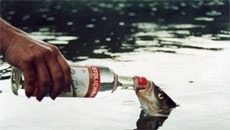The increasing use of plus-sized models in advertising campaigns is contributing to growing rates of obesity, a new study from Beedie School of Business in Canada has claimed.
The researchers found that as advertising campaigns increasingly use fewer images of models that are underweight and aesthetically flawless, the tactic can have a detrimental effect on the public's lifestyle and eating behaviour.
"This study demonstrates that accepting larger bodies is associated with negative consequences, research also shows that 'fat-shaming' -- or stigmatising such bodies -- fails to improve motivation to lose weight," said study co-author Brent McFerran.
The researchers conducted five experiments to see how subjects would react to cues suggesting that obesity was acceptable.
In each instance the subjects displayed a greater actual consumption of unhealthy food and a reduced motivation to engage in a healthier lifestyle, driven by an increased belief that obesity was more socially acceptable.
The study's authors posit that efforts to increase acceptance are resulting in increasing the amount of thought consumers put into their appearance and heightening body anxiety.
"Neither accepting nor stigmatising larger bodies achieves the desired results, it would be beneficial for marketers to instead find a middle ground - using images of people with a healthy weight, and more importantly, refraining from drawing attention to the body size issue entirely," McFerran added.
The study was published by the American Marketing Association's Journal of Public Policy and Marketing.





